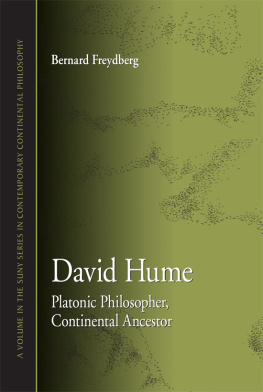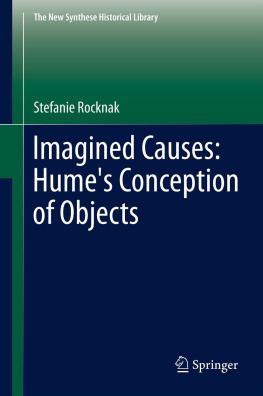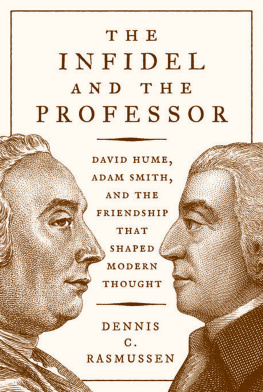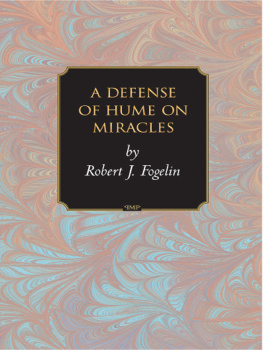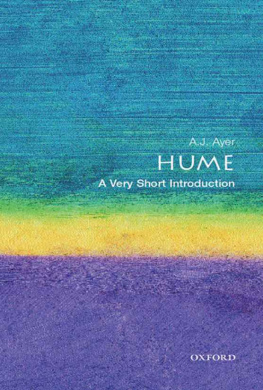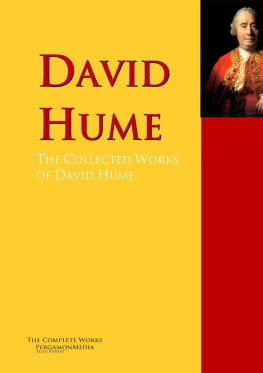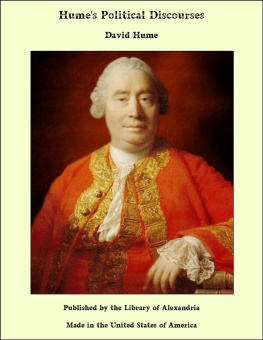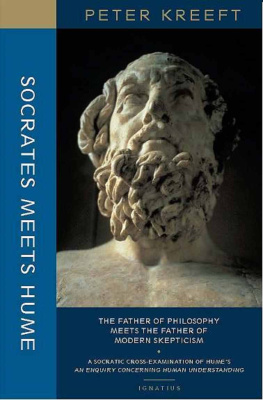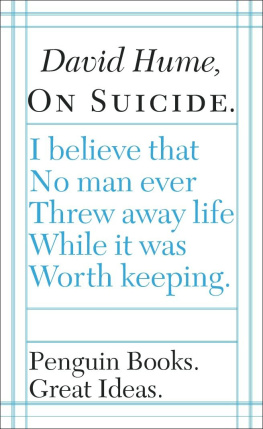SUNY series in Contemporary Continental Philosophy

Dennis J. Schmidt, editor
David Hume
Platonic Philosopher, Continental Ancestor
BERNARD FREYDBERG

On the cover are details from Views of the Bosphorus:
- Views of the Bosphorus: Sariyer, 2011, 20h 40w, bamboo stitched on paper.
- Views of the Bosphorus: Istinye, 2011, 20h 40w, bamboo stitched on paper.
- Views of the Bosphorus: Sea of Marmara, 2011, 20h 40w, bamboo stitched on paper.
Published by State University of New York Press, Albany
2012 State University of New York
All rights reserved
Printed in the United States of America
No part of this book may be used or reproduced in any manner whatsoever without written permission. No part of this book may be stored in a retrieval system or transmitted in any form or by any means including electronic, electrostatic, magnetic tape, mechanical, photocopying, recording, or otherwise without the prior permission in writing of the publisher.
For information, contact State University of New York Press, Albany, NY
www.sunypress.edu
Production by Ryan Morris
Marketing by Kate McDonnell
Library of Congress Cataloging-in-Publication Data
Freydberg, Bernard, 1947
David Hume : platonic philosopher, continental ancestor / Bernard Freydberg.
p. cm. (SUNY series in contemporary continental philosophy)
Includes bibliographical references and index.
ISBN 978-1-4384-4215-0 (hardcover : alk. paper)
1. Hume, David, 17111776. I. Title.
B1498.F74 2012
192dc23
2011023763
10 9 8 7 6 5 4 3 2 1
For Dennis J Schmidt:
Original Thinker, Friend to Philosophy and Philosophers
Acknowledgments
The following people and institutions supported the writing of this book in various ways. I thank them, one and all, more than I can say.
I was blessed with two terrific editors at the State University of New York Press. Jane Bunker, Editor in Chief, with whom I began this book before she moved on to the directorship at Northwestern University Press, is a brilliant editor and a brilliant human being. Given her background in philosophy, her support for this book gave me much confidence. Andrew Kenyon, now Assistant Acquisitions Editor and in charge of philosophy books, has been a delight to work with.
Sami Glgz, Dean of the School of Social Sciences and Humanities at Ko University, Istanbul, approved a leave for the summer of 2008 that made the research and part of the writing of this book possible. Shannon Sullivan, Chair of the Pennsylvania State University Philosophy Department, granted me the position of Visiting Scholar for that same summer. This enabled me to avail myself of the wonderful Penn State libraries and other facilities. James Swindal, Chair of the Duquesne University Philosophy Department, graciously appointed me Scholar in Residence, the post I now occupy. I completed the book under his and its aegis.
Two anonymous readers for the State University of New York Press provided me with reviews that combined encouragement with astute criticism. A long conversation with Jennifer Mensch of the Penn State Philosophy Department on pre-Kantian philosophy was most illuminating. Michael Rudar and John Fritz, two of my former undergraduate philosophy students who are completing their PhD degrees at Duquesne University, proofread and offered helpful comments on the manuscript. Both will surely be excellent professors before too long.
Kathleen Manning and Rita McClelland of Bailey Library at Slippery Rock University were, as they have been in the past, exceptionally helpful in securing materials for this book. One could not hope for better librarians.
My wife, Akiko Kotani, inspires me in every way. Once again, her view as an artist on imagination has influenced my own, and she is a marvelous partner in all that I attempt. My daughter, Malika Hadley Freydberg, also gives me wings by virtue of her intelligence and great spirit.
Dennis J. Schmidt has made important contributions to philosophy on every level. His scholarly work always breaks new ground. He has regularly had a prominent role in organizing important conferences and events. As a teacher, he presents lectures and conducts that challenge, encourage, and open new pathways for his hearers. As editor of this series, he has overseen the publication of more than one hundred Continental philosophy books over the years. My debt is to him considerable, and it is an honor to be his colleague. With humility and great pleasure, I dedicate this book to him.
Introduction
My ambition for this book is large. With it, I seek to locate David Hume incontestably as a most worthy ancestor of and for Continental philosophy. While his thought receives occasional treatment, especially in Husserl, and while Deleuze's 1953 Empiricism and Subjectivity: An Essay on Hume's Theory of Human Nature provides a daring and valuable reading of the Treatise of Human Nature, no single book in the Continental tradition (at least to my knowledge) attempts an overview of Hume's philosophy in terms of its major developments in interpretation. Among these, I consider especially Heidegger's of Kant, Merleau-Ponty's of Husserl, and Sallis's of Plato (as well as of many others). These interpretations combine scrupulous regard for the texts with creative excavations yielding heretofore untapped resources. Happy indeed (as Hume would write) if in this book such fine scholarship joins with such worthy novel insights!
I find an inspiration for this task in a well-known turning point in philosophy's history. According to my view, the greatest Hume scholar to date and perhaps forever is Immanuel Kant. In his time, he alone grasped the radicality and the force of his Scottish forbear's thought. After denouncing the obtuse responses of Reid, Oswald, Beatty, and Priestly to Hume, he famously wrote in the Prolegomena:
I openly confess my recollection of David Hume was the very thing that many years ago first interrupted my dogmatic slumber and gave my investigations in the field of speculative philosophy a quite new direction.
The word recollection is hardly innocent in philosophy. While one cannot make any direct connection between Kantian and Platonic recollection (though Kant knew Greek well, and undoubtedly read Plato in both Greek and German), I venture to assert at least a strong analogy: Along with the voluminous contents in the soul of Kant, there dwelled the arguments of Hume. With suddenness at some point, Kant saw how powerfully his thought challenged both modern rationalism and modern empiricismjust as it challenged his own lifelong efforts as a metaphysician. It is impossible to fix the precise date at which he experienced the full power of Hume's insight, but his Inaugural Dissertation, which still contained traces of rational metaphysics, was delivered in 1777 when he was fifty-three years old, and the Critique of Pure Reason first appeared in 1781.
The central Transcendental Deduction took many years and much labor to complete. The framework and the setting of the problem can be found in Kant's 1772 well-known letter to Markus Herz:
[A]s to how my understanding may form for itself concepts of things completely a priori, with which concepts the things must necessarily agree, and as to how my understanding may formulate real principles concerning the possibility of such concepts, and experience must faithfully agree with these principles which nevertheless are independent of experiencethis question, of how the faculty of understanding achieves this conformity with the things themselves, is still left in a state of obscurity.
Next page
